Issue 02, Photo stories, Sierra Leone
A Life After Kafala
Aline Deschamps
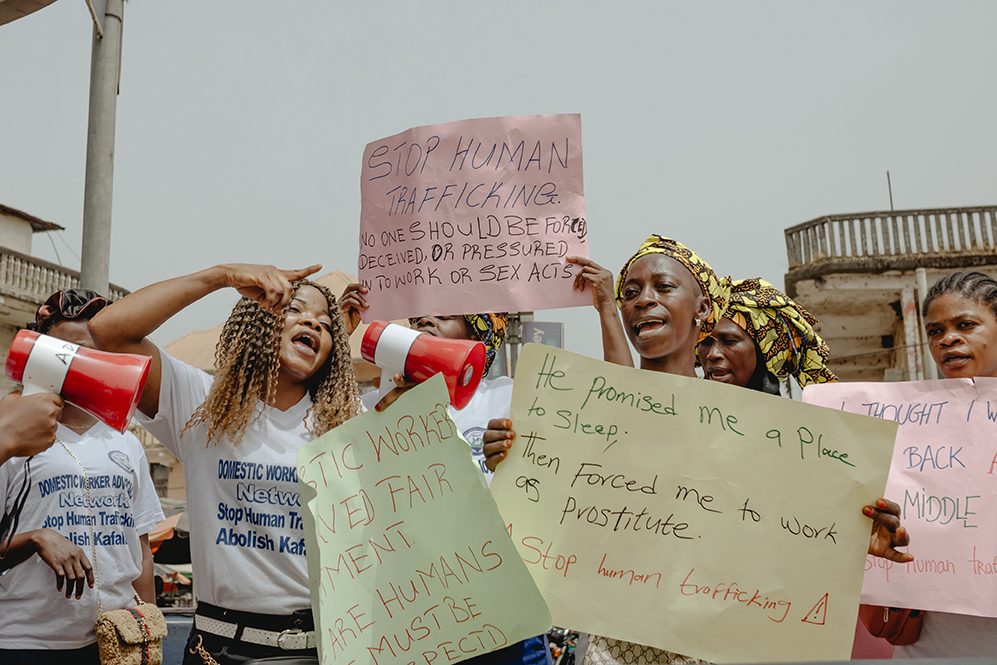
In the spring of 2020, photographer Aline Deschamps started a project which followed the daily life of Sierra Leonean migrant domestic workers repatriated from Lebanon. Through a mosaic of individual narratives, this series aims to capture the often overlooked complexities and long-term impacts and traumas that these women experience under the Kafala system, an oppressive structure that binds migrant domestic workers to their sponsors, who hold considerable authority and control over them.
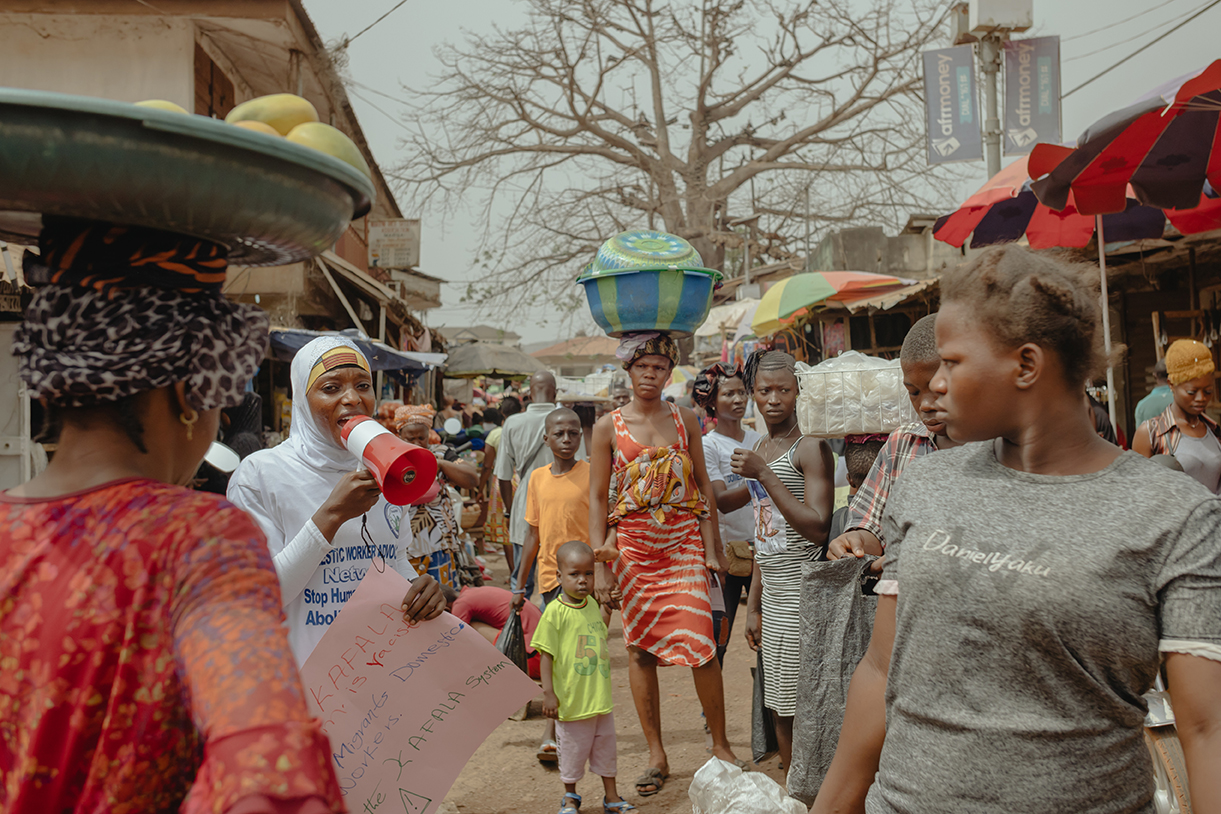
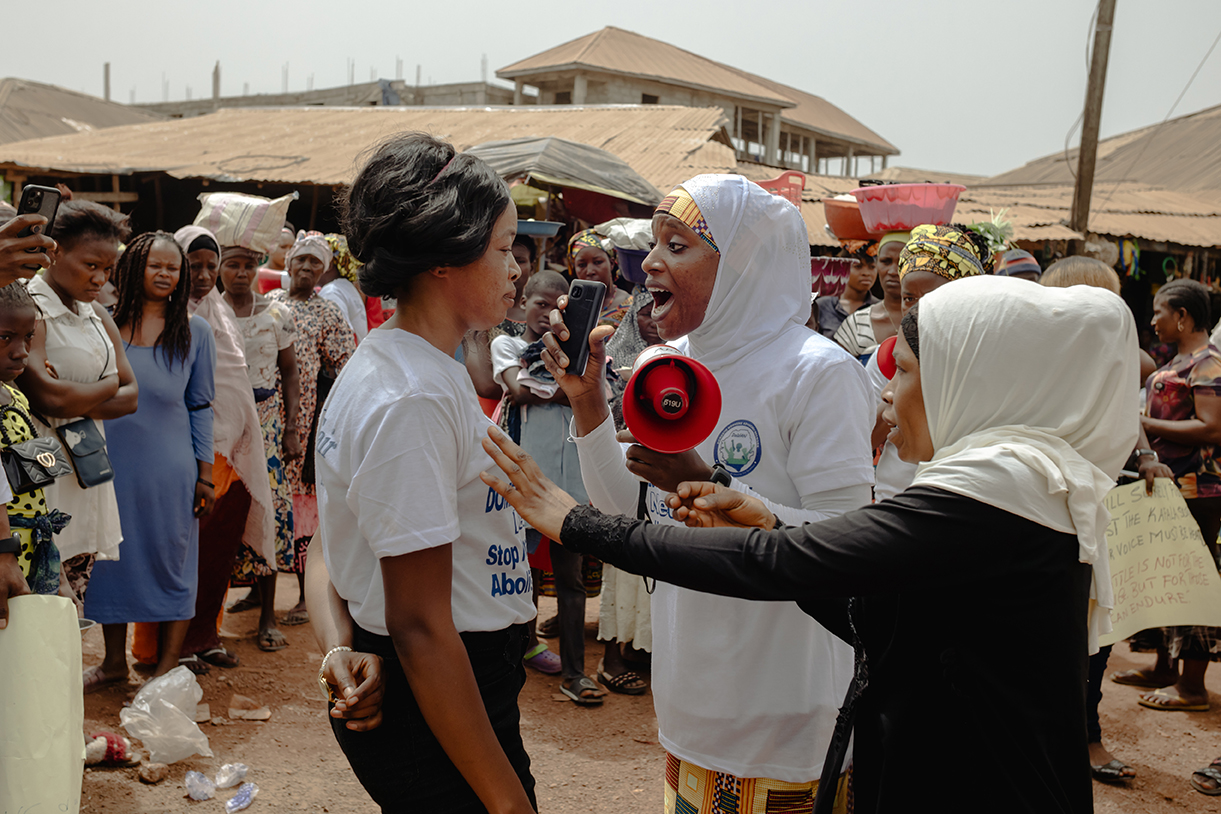
“I met with Lucy in her office and explained my story to her. She sympathized with me and told me, she too went through the same thing. She welcomed me with open arms and introduced me to other survivors who I met while learning Gara tie dying and bead design in the office. Since that day, I have turned to her place as my second home.”
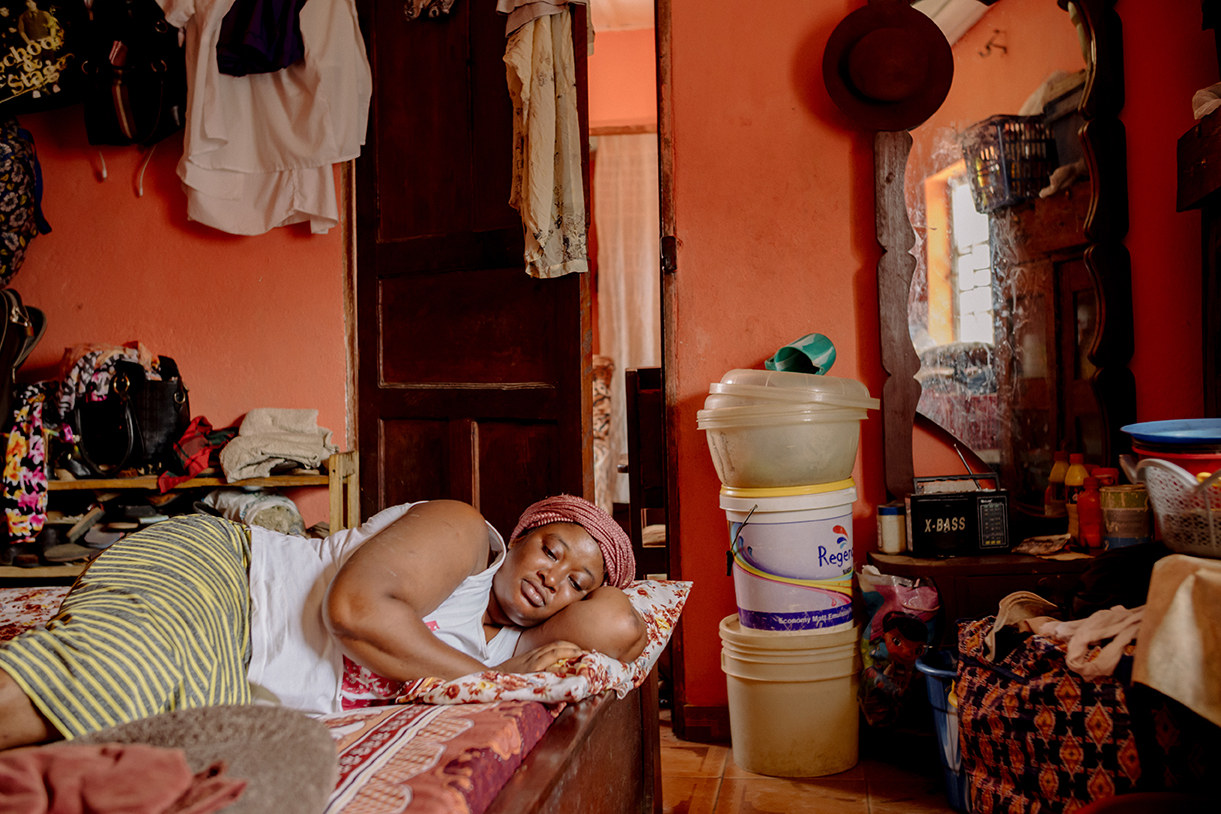
I am Emma Mansaray. I am 32 years old. I was born and brought up in Makeni, which is the northern part of Sierra Leone. I am an ex-domestic worker from Kuwait. I travelled to Kuwait on the 24th April 2017 and returned home on 19th March 2021. I was betrayed by my agent who collected lots of money from my mother to process my documents. He told me that when I arrived in Kuwait, my story would change; he said there were lots of job opportunities, and I would either work in a restaurant or hotel. But when I arrived my story changed. I had to take care of three kids and, at the same time, prepare food, do laundry, clean and do all types of jobs. I worked at my agent’s house for one year and at my sponsor’s house for one year and six months. My salary was KD.70 (228.29 USD) and even though I worked for them for two years and six months, I only received one year’s worth of salary. I split my day, working in three houses and slept just for three hours at night.
One day, I decided to run away and went to the street. On my way, I met an Indian woman who took me to her house and helped me with food and shelter. I stayed with her for some time and started working for other people to raise money to buy a ticket and come back home. The other people I worked for, some gave me a salary but others didn’t. I suffered a lot. I later got sick and was hospitalized. I went into a coma for two weeks and stayed in the hospital for four months. Later I returned to my home country.
But when I returned, my family’s expectations were very high. They assumed I brought some money back with me. But I was very sick by then. My family and friends mocked me every day. They called me terrible names. But one day, I met a woman who was also a survivor and she told me about Lucy. I met with Lucy in her office and explained my story to her. She sympathized with me and told me that she too went through the same thing. She welcomed me with open arms and introduced me to other survivors who I met while learning Gara tie dying and bead design in the office. Since that day, I have turned to her place as my second home. She has encouraged me to learn tailoring and take on other skills she offers to survivors. I take her advice very seriously and now I have started reaping the benefits. Sometimes, she even helps us with transportation, food and medical assistance. I always love working with the group as we have fun and share our stories with each other.
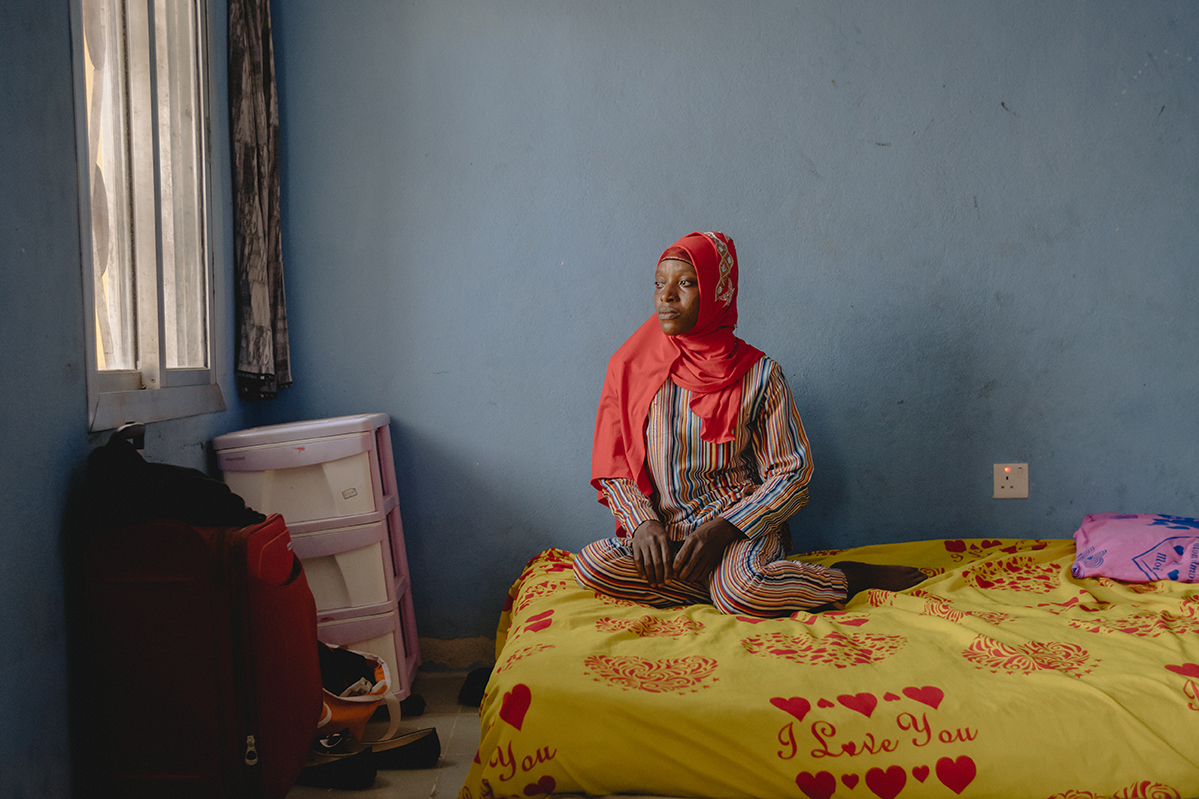
On the bedsheet is written “I love you.”
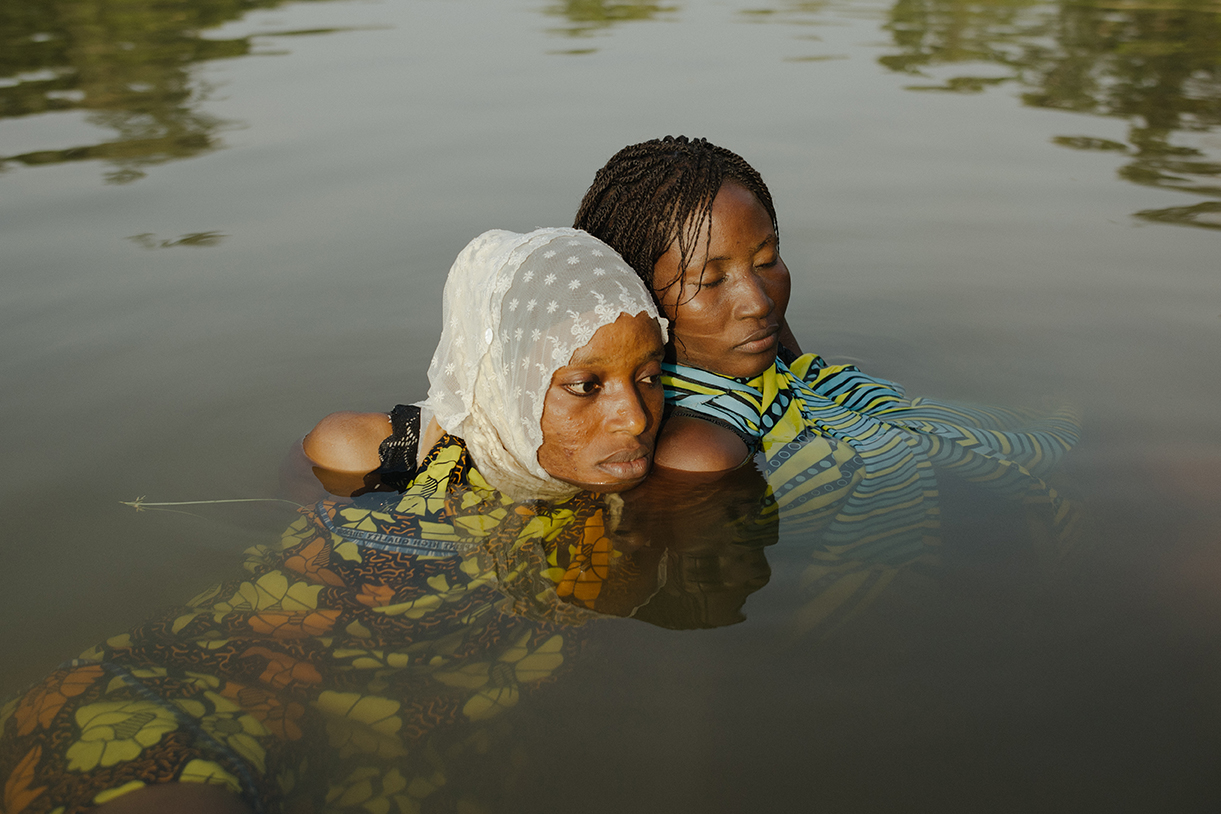
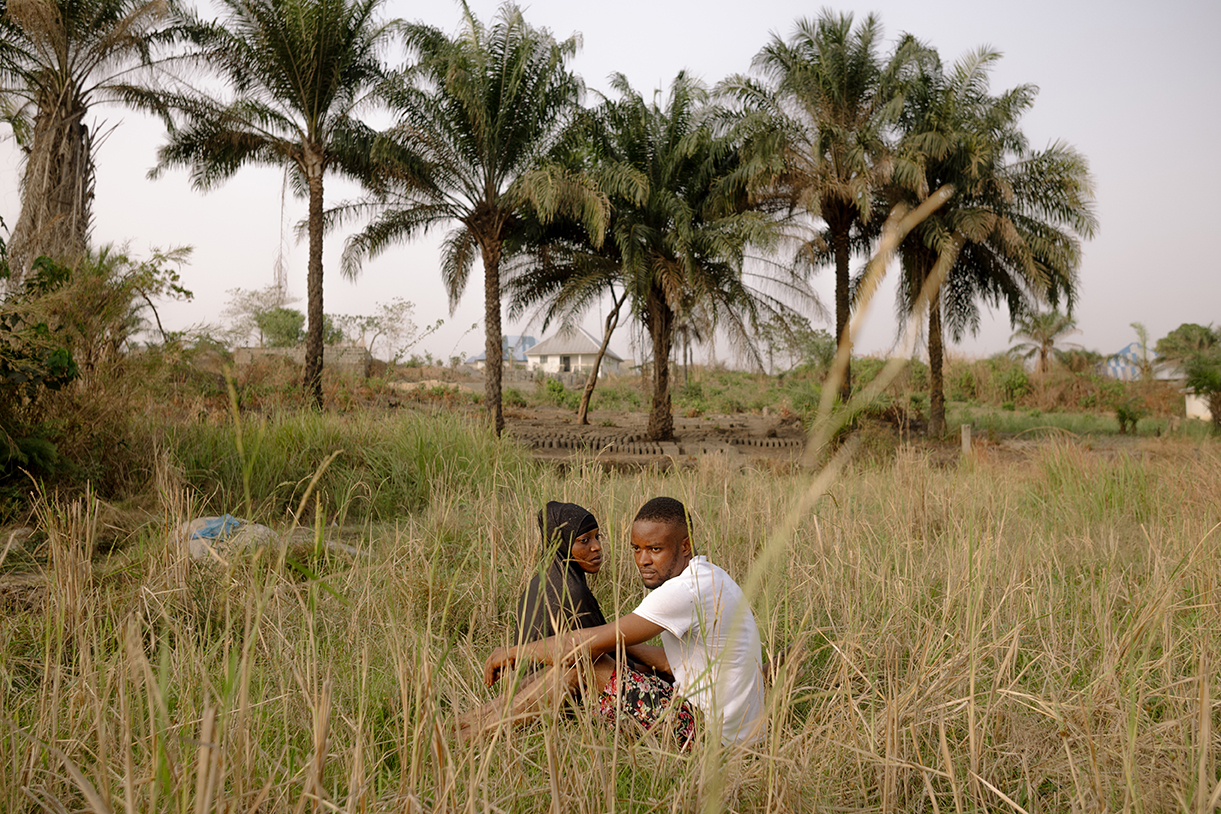
I am Doris Lavalie. I am 30 years old. My father died when my mother was just eight months into her pregnancy. I was born and brought up in the Mokanji village, in the Moyamba district of Sierra Leone. My dream was to become a state registered nurse.
I lived with my mother for many years in the village. One day, my mother got in contact with an agent who decided to help me travel to Lebanon for work, but the agent requested that my mother pay $1200. With no other options, my mother decided to sell her piece of farm land to raise the money. My mother paid $500 to the agent as part of the payment and he travelled to Freetown to process my documents. While waiting, I listened to an AYV radio discussion where Lucy Turay said that she was once a victim of human trafficking and the Kafala system. In the interview, she discussed the struggles she faced in Lebanon and gave advice to Sierra Leoneans who want to travel to the Middle East but not experience the same thing. She shared her contact number and her office address with the public and encouraged women to come and learn skills for free instead of going to the Middle East. From there I got her contact number and communicated with her the next day. I changed my mind and decided not to go to the Middle East anymore and tried to talk to my mother about it. But she refused and continued to put more pressure on me to travel as she wanted me to help the family. I decided to move to the village and came to the city on 6th February 2022. When I arrived in the city the next day, I contacted Lucy who directed me to where she lives and asked me to stay with her.
In the morning, she introduced me to the other survivors in the office and asked me if I wanted to start learning tailoring and other skills they offer to the group. Since that day, life has never been the same. Every day, I learn new things with the group, and we share stories and motivate each other. Now I am proud to have knowledge of tailoring, bead work and weaving. I can now sew African clothes for myself and my family without the help of other people.
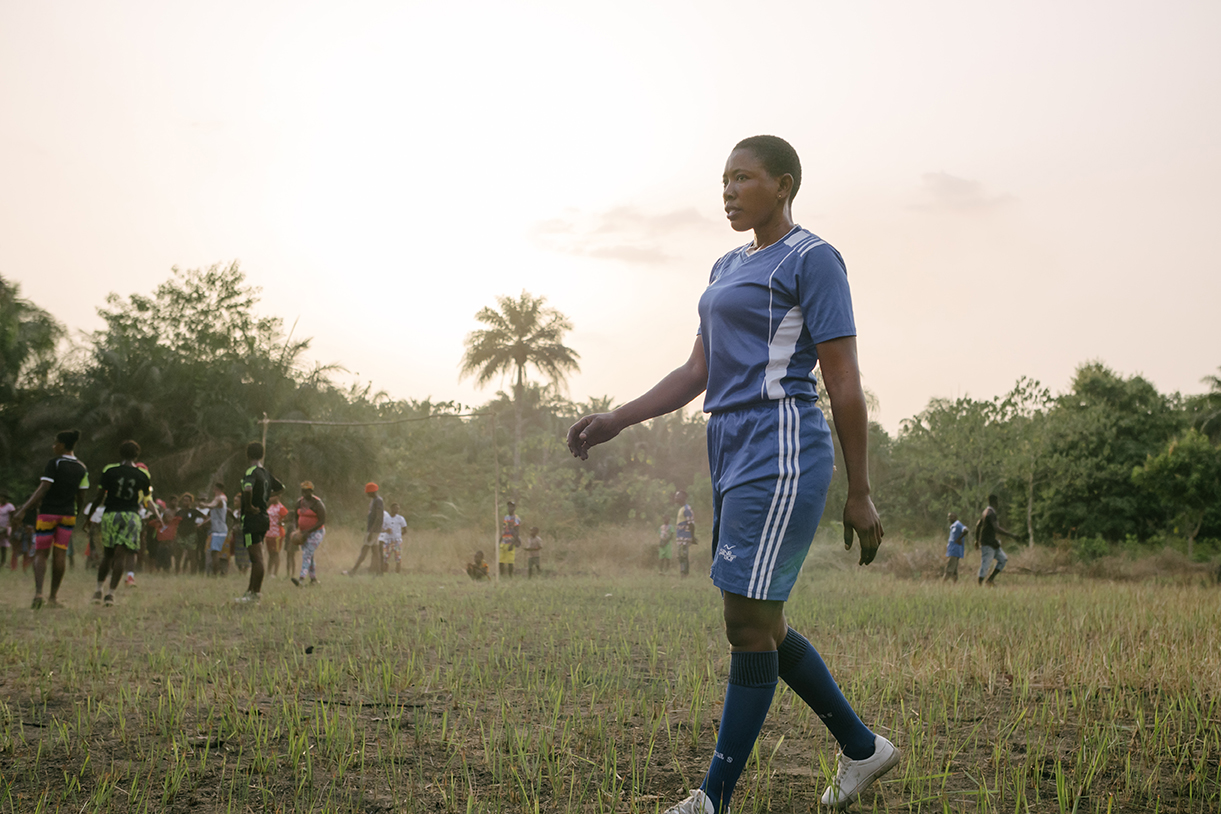
“I changed my mind and decided not to go to the Middle East anymore and tried to talk to my mother about it.”

I am Lucy Turay. I am 29 years old. I was born at Kholifa Mabang, in the Tonkolili district of Sierra Leone. I am a survivor of human trafficking and the Kafala system. I am a human rights activist and the founder of Domestic Workers Advocacy Network – Sierra Leone. I travelled to Lebanon the 28th June 2019 with the hope of working there as a teacher and to help my family back home, but the story changed when I found myself under domestic servitude. I returned home on the 27th September 2020 feeling frustrated and depressed, with no hope of being a successful person again.
But when I returned home, I met other girls who went through the same struggles, as many lost their marriages, homes, and properties. Some had their families reject them and others had old friendships fall away. Some returned home, sick with no medical attention. Some even died. Some have debt that they took on before they travelled, which they were unable to pay back when they returned home.
I’ve found that in most cases the women end up re-trafficking themselves to other countries in the Middle East. I try to forget about my own story and step into their shoes to see how best I can aid them in healing from their trauma. In Lebanon, I decided to form a feminist non-profit organization to fight against the Kafala system and human trafficking. I started it with the help of a few survivors and later we got financial support and opened an office. Through our advocacy, we have been able to bring on other survivors who have joined us in the fight. It doesn’t stop there. I established several departments including tailoring, bead design, Gara tie dying, and farming to support the group and other survivors who may wish to join the organization. I also formed a club for mothers with the women in the communiy to teach them about human trafficking.
I registered more than 200 survivors, helping to make them more self-reliant. Sometimes, I help them with transportation and provide food when we receive funding. I have also encouraged other survivors whose families rejected them to stay with me. Now we have survivors that can design beads for sale and sew African clothes for themselves and for their children.
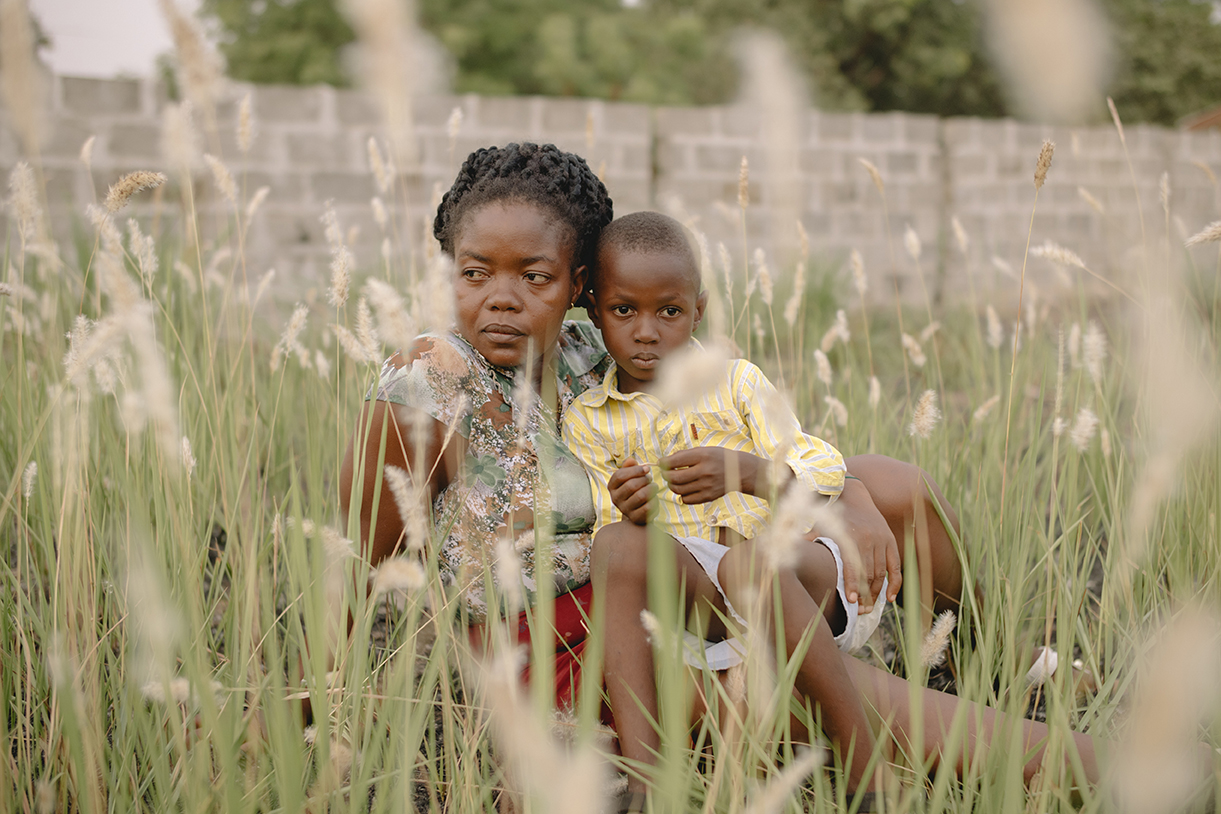
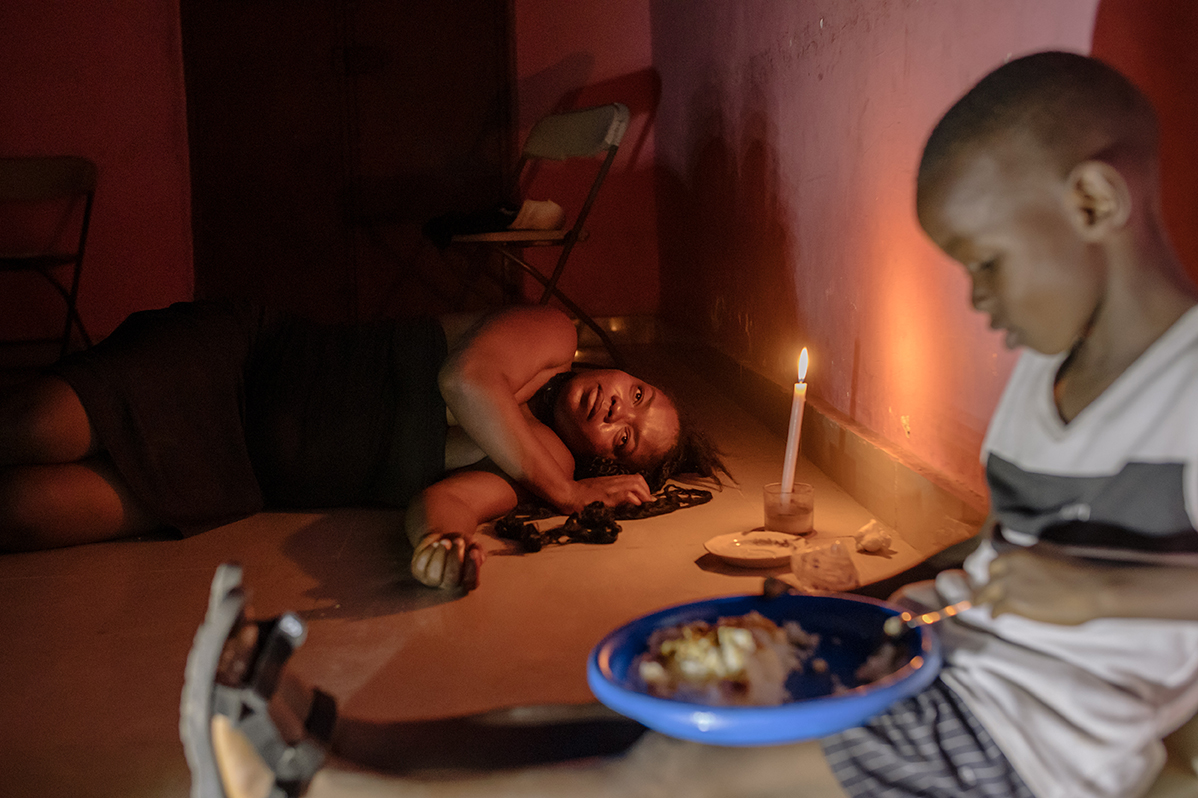
“I am a survivor of human trafficking and the Kafala system. I am a human rights activist and the founder of Domestic Workers Advocacy Network – Sierra Leone.”
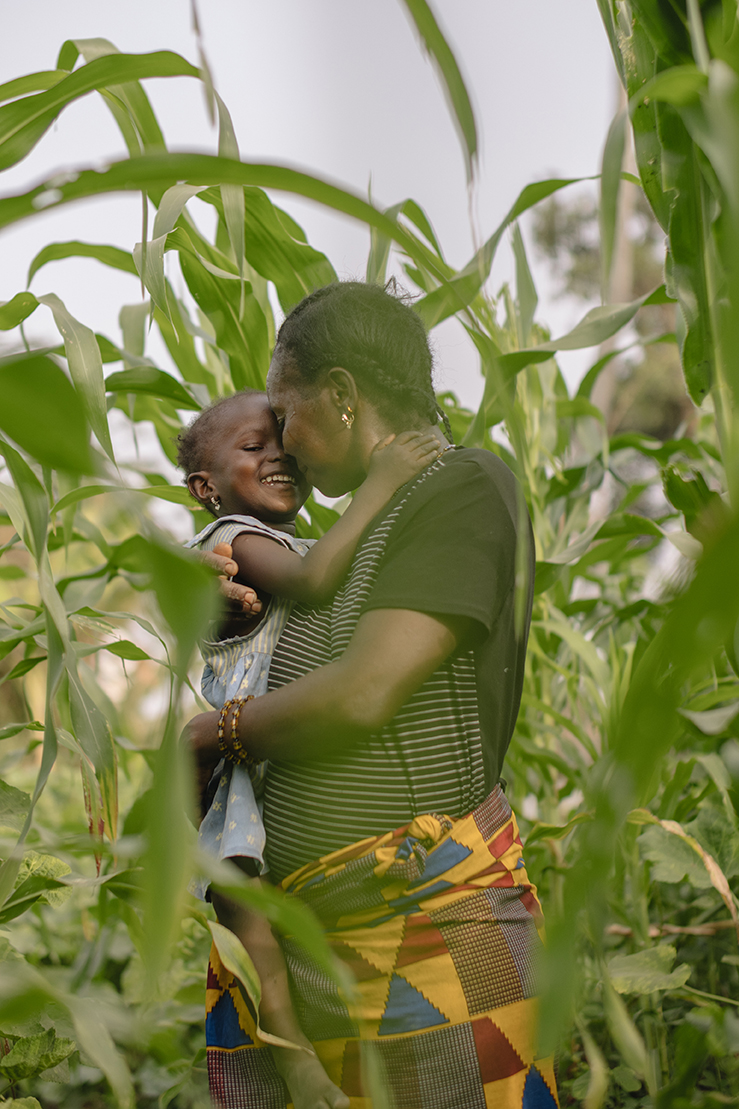


Testimonies by Emma Mansaray, Doris Lavalie, and Lucy Tray
